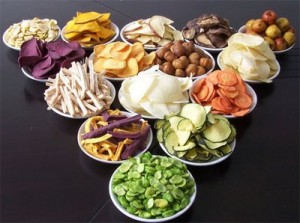
I just received my blood tests and unfortunately I belong to the bunch of people who have high cholesterol – have to lose a few pounds and try to lower it without taking pills. So I googled before visiting my dietician for fellow cosmo-cholesterol high readers. Lets beat it to the ground guys!
Cholesterol is a steroid lipid (fat) found in the blood and is necessary for proper functioning of cell membranes. Our bodies already manufacture all the cholesterol we need, so it is not necessary to consume more. High levels of cholesterol have been shown to increase the risk of heart disease and stroke. Cholesterol lowering foods should be incorporated into everyone’s diet for optimal health. The percentages by which these foods lower cholesterol reflect people who have high levels of cholesterol greater than 200 mg/dL, and have been diagnosed with hypercholesterolemia. Different diets, lifestyles, and foods will work differenlty for different people. It is recommended that you buy a Cholesterol Test Kit, so you can monitor your cholesterol levels at home and see which diet and lifestyle works best for you. Below is a list of foods which lowers the “bad” LDL cholesterol, while leaving the good HDL cholesterol largely unaffected.
#1: Monounsaturated and Polyunsaturated Fats (Olive Oil, Canola Oil, Peanut Oil, Peanuts, Olives, Avocados)
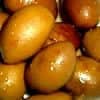 Cholesterol Reduction:18%1,2,37
Cholesterol Reduction:18%1,2,37
Substituting saturated animal fats and other high cholesterol foods with healthier fats like olive oil, canola oil, peanut oil, and avocados is the most powerful thing you can do to achieve a drastic reduction in your LDL cholesterol. Specifically a diet high in olive and sunflower oil, that contains 12.9% saturated fat, 15.1% monounsaturated fat, and 7.9% polyunsaturated fat can achieve an 18% reduction in LDL cholesterol vs people on a diet higher in saturated fat.1
#2: Bran (Oat, Rice)
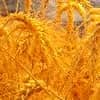
Bran, particularly oat bran, has been proven effective in lowering LDL cholesterol levels. Add bran to hot cereals and bread. Also, eating whole oatmeal every morning, or switching to whole products like brown rice, can help you get more bran in your diet and lower your cholesterol numbers. Click to see complete nutrition facts for Bran.
#3: Flax Seeds
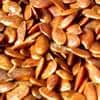 Cholesterol Reduction:8-14%6,7
Cholesterol Reduction:8-14%6,7
Up to 50 grams of flax seeds a day has been shown to reduce LDL cholesterol in healthy young adults by up to 8%,6 and 38 grams of flax seeds per day reduced LDL cholesterol by 14% in people with high cholesterol (hypercholesterolemia).7 In both studies the flax seeds where consumed in a muffin or other bread product. Flax seeds are easily incorporated in baked goods, as well as added to hot cereals like oatmeal.
Click to see complete nutrition facts for Flax Seeds
#4: Garlic
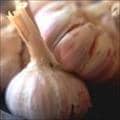
Studies have shown that less than half a clove (900mg) of raw garlic a day can lower cholesterol by 9-12%.8,9 Raw garlic is best and can be added to olive oil salad dressings, or as a garnish on soups and sandwiches. Click to see complete nutrition facts for Raw Garlic.
#5: Almonds
 Cholesterol Reduction:7-10%10-12
Cholesterol Reduction:7-10%10-12
Several studes report that eating up to a cup of almonds can reduce cholesterol levels by up to 10%. In a dose response study it was found that half a cup of almonds reduces cholesterol by 5% and 1 cup causes the full 10% reduction.11 As almonds are a high calorie food, it is not recommended that you eat more that a cup. Almonds are great as a snack, or as an addition to breakfast cereals like oatmeal.
Click to see complete nutrition facts for Almonds.
#6: Lycopene Foods
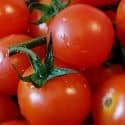
Lycopene is a carotenoid pigment responsible for giving fruits and vegetables their red color and is found in tomatoes, watermelon, and various other high lycopene foods. Studies are conflicting as to whether lycopene reduces LDL cholesterol or not. Some studies report a 10-17% reduction13,14 while other studies find no difference.15,16 Despite this difference, lycopene is thought to generally promote heart health whether it lowers LDL cholesterol or not.
#7: Walnuts and Pistachios
 Cholesterol Reduction:10%17-21
Cholesterol Reduction:10%17-21
Numerous studies report a reduction in cholesterol with consumption of walnuts or pistachios. This is esepcially true when the fats from the nuts replace consumption of other high cholesterol fats. Consuming around 30 grams of walnuts, or having the nuts be about 20-30% of total caloric intake is necessary to achieve the cholesterol lowering benefits.19
Click to see complete nutrition facts for Walnuts and Pistachios.
#8: Whole Barley
 Cholesterol Reduction:7-10%22,23
Cholesterol Reduction:7-10%22,23
Like the bran from oats and rice, barley reduces cholesterol, particularly when it is used as a substitute for wheat products.22 Barley can easily substitute for wheat in the form of barley noodles, barley flour, or whole pearl barley. Click to see complete nutrition facts for Barley.
#9: Dark Chocolate and Plant Sterols
 Cholesterol Reduction:2-5%24,25
Cholesterol Reduction:2-5%24,25
The plant sterols and cocoa flavanols in dark non-milk chocolate have been shown to reduce cholesterol by 2-5%. Further, plant sterols (phytosterols), found in all plants, and particularly plant oils like corn oil and soybean oil have been shown to lower LDL cholesterol by up to 16%.25 However, this reduction is largley due to inhibiting absorption of cholesterol, and would not have a large effect if you consumed little or no cholesterol.
Click to see complete nutrition facts for Dark Chocolate.
#10: Green Tea
 Cholesterol Reduction:2-5%26
Cholesterol Reduction:2-5%26
Green tea has long been a staple in East Asia where it is believed to wash oil (fat) out of the body. Studies suggest this may be true as. green tea can lower cholesterol by 2-5%.26 Green tea without sugar also has few calories (typically less than 10) and can make a great substitute for a variety of beverages. Click to see complete nutrition facts for Green Tea
Read more at http://www.healthaliciousness.com/articles/foods-which-lower-cholesterol.php#tq2YyMJAkZI1pdvO.99
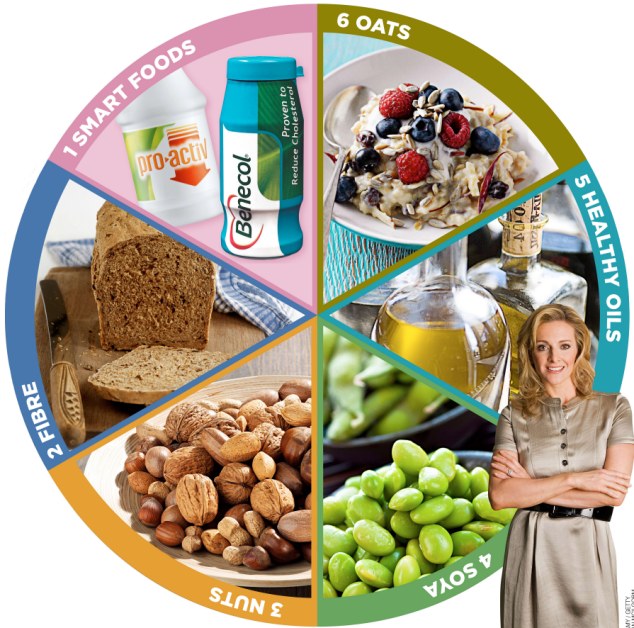
You hear a lot about good cholesterol vs. bad cholesterol in terms of diet. What you probably didn’t know was that our bodies already naturally create ALL of the cholesterol we need to stay in good health. Meaning, getting even more of it via a poor diet is just asking to have your arteries clogged.
If your cholesterol is too high, it’s time to get moving! Even moderate exercise can improve your cholesterol, as well as triglycerides and your blood pressure.
Here are some other ways to help manage your cholesterol:
Eat More Soluble Fiber:
Some of the best soluble fiber rich foods include oatmeal, barley, lentils, brussels sprouts, peas, beans (kidney, lima, black, navy, pinto), apples, blackberries, pears, raisins, oranges, grapefruit, dates, figs, prunes, apricots, broccoli, and sweet potato. These foods help to evacuate cholesterol out of our bodies.
Increase Omega Fatty Acids:
Eat fish like wild salmon, sardines, anchovies, and mackerel (not king). If you cannot manage to eat that much fatty fish, incorporate Omega-3 fortified eggs and additional plant based sources like walnuts, soybeans, and ground flax. Also, consider taking fish oil capsules.
Increase Monounsaturated Fats:
The best monounsaturated fat filled foods include: Olive oil and olives, canola oil, avocado, macadamia nuts, hazelnuts, pecans, almonds, peanuts, cashews, pistachio nuts and peanut butter.
Increase Sterols and Stanols:
These are natural substances found in small amounts in the cell membrane of plants. This includes fruits, vegetables, legumes, nuts, and seeds. Sterols are found in relatively high amounts in pistachio nuts, sunflower seeds, sesame seeds, and wheat germ. Research has shown that sterols and stanols have been shown to cut the amount of cholesterol absorbed by the small intestines by about 50 percent.
Alcohol:
Although all alcohol has heart-healthy benefits, red wine also contains antioxidants called flavonoids and resveratrol—an extra boost of nutrition. This can be beneficial in moderation, which means one 4oz glass of wine a night for women and two 4oz glasses for men.
























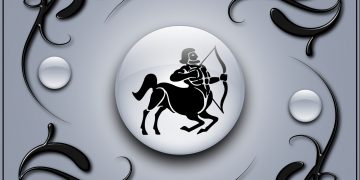



















Σχόλια για αυτό το άρθρο